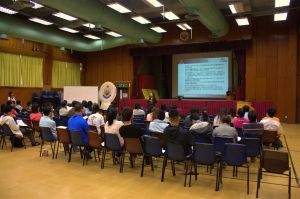
Disaster emergency responders are often the first to arrive at the front line during a disaster, witnessing the traumatic scene and facing life-threatening situations. They often experience the intensity of the disaster directly and may experience psychological aftermaths for prolonged periods. They also have the opportunity to offer psychological comfort to survivors in emergency settings. Therefore, knowledge and skills for both self-help and help-offering are necessary.
Similar to the concept of physical first aid in its focus on stabilizing a person’s conditions and avoiding further trauma, “Psychological First Aid” (PFA) has been proposed by the World Health Organization and other leading medical and psychological institutes as the intervention model of choice to be applied immediately after disasters and emergencies. Despite the advocacy of these leading organizations, there is a lack of direct research to demonstrate the application and effectiveness of this approach in emergency settings among both victims and disaster responders.
Partnered with the HKSAR Auxiliary Medical Service (AMS), an organization that trains physical first aid responders to assist in local disaster and emergency situations, CCOUC trained AMS members to apply PFA as part of their work as well as to protect their own mental health.
This project aims to achieve three objectives:
By evaluating the PFA programme, the project provided direct evidence regarding the effectiveness of PFA training among first responders. This study will inform both academics and practitioners whether this programme enhances the mental health and pre-disaster preparedness for trainees and how it influences post-disaster coping and mental health. The results could serve as evidence for further development and promotion of PFA training programmes among first responders.
Project Duration
2 Years (2011-2012)
Funding
This project was supported by The Chinese University of Hong Kong (CUHK) Direct Grant for Research 2009 / 2010, the JC School of Public Health and Primary Care Student Research Grant, and the CUHK Global Health and Disaster Studies Research Development Fund.